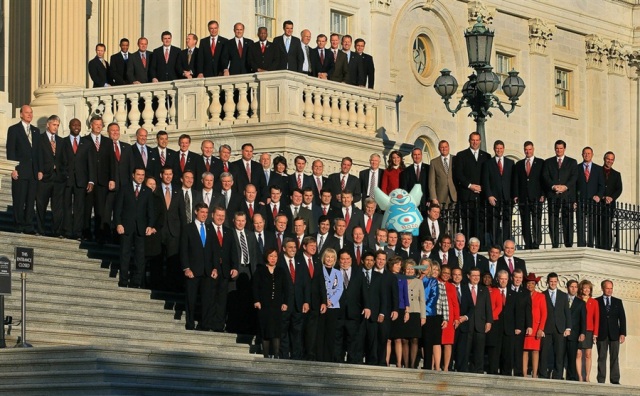There are millions of Americans that will tell you that there is no difference between the Democrats and Republicans. They will also tell you that they don’t vote, because it does not matter who is the Speaker of the House, and which party has the majority in the House or Senate. But the majority of Americans cannot tell you the name of the governor of their state, and the vice president’s name of the country.
In 2015, the Republicans will be the majority party in the House and Senate, and very few Americans understand what this means. The majority party in the Congress means that they will become the chairperson of the major committees, where all the bills are worked on and completed. The chairperson decides the agenda for the committees, and what bills will be sent to the floor to vote on.
In the last four years the Republicans in the House have decided what bills are discussed and worked on in the committees. Since the Democrats were controlling the Senate, the House could never get their bills pass the Senate, and there was gridlock in Washington. The two parties were always fighting, so very few bills were signed into law by the president in the last four years.
Some experts call this the “do nothing Congress” but the Republicans have the majority in both Houses now. Since the Republicans control both Houses, they will push a right-wing extremist agenda. But in the American Democratic system, there are checks and balances, and the president has the power of the veto. With the Senate being Democrat the last four years, they did the dirty work, and the House’s right-wing agenda was stopped in its tracks.
But now with Senator Mitch McConnell (R-Ky) in charge, there is no doubt in the Senate that the new committee chairpersons do not agree with the president’s positions, and ideology. Senator John McCain (R-Ariz.), will probably become the chair of the Senate Armed Services Committee, and he has always been very critical of everything the president has done. Senator Jeff Sessions (R-Ala.) is expected to take over the Senate Budget Committee, and now the president will be forced to negotiate with conservatives who are opposed to clean energy, and energy efficiency standards.
Everyone who follows the federal lawmakers knows that the Republicans will try to roll back or repeal the ACA. It should be easy to pass laws to repeal the ACA, and it will get ugly when it gets to the president’s desk to sign. It makes no difference that the ACA has given seven million Americans healthcare insurance, the Republicans only want to destroy the president’s achievements that have helped millions of citizens.
The Republicans have always been more connected to the super rich, and they will probably try to roll back the Dodd-Frank financial law. During the next two years, all the Republicans will talk about is making the federal government smaller. But when the Republican governors talk about smaller governments, their budgets are some of the largest in the history of their state.
I have come to believe that Republicans like to say one thing and do another. They say they are for the American people, but the super rich get richer and the poor get poorer. There are huge differences between the two parties, and eighty-five percent of the Republican Party is white. White people are exclusive when they govern, and America is now multi-cultural, so Republicans are on the wrong side of history.
Democrats support common people, who are the huge majority of Americans, and Republicans support the rich who are only 5% of the country.















